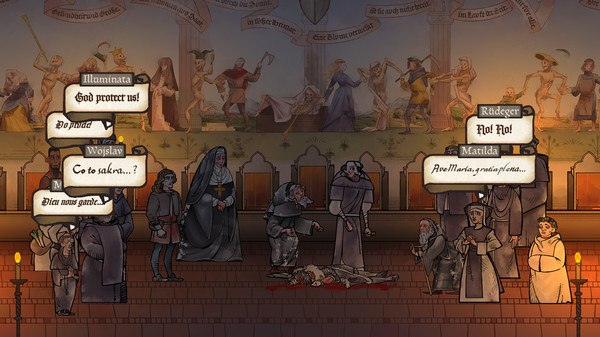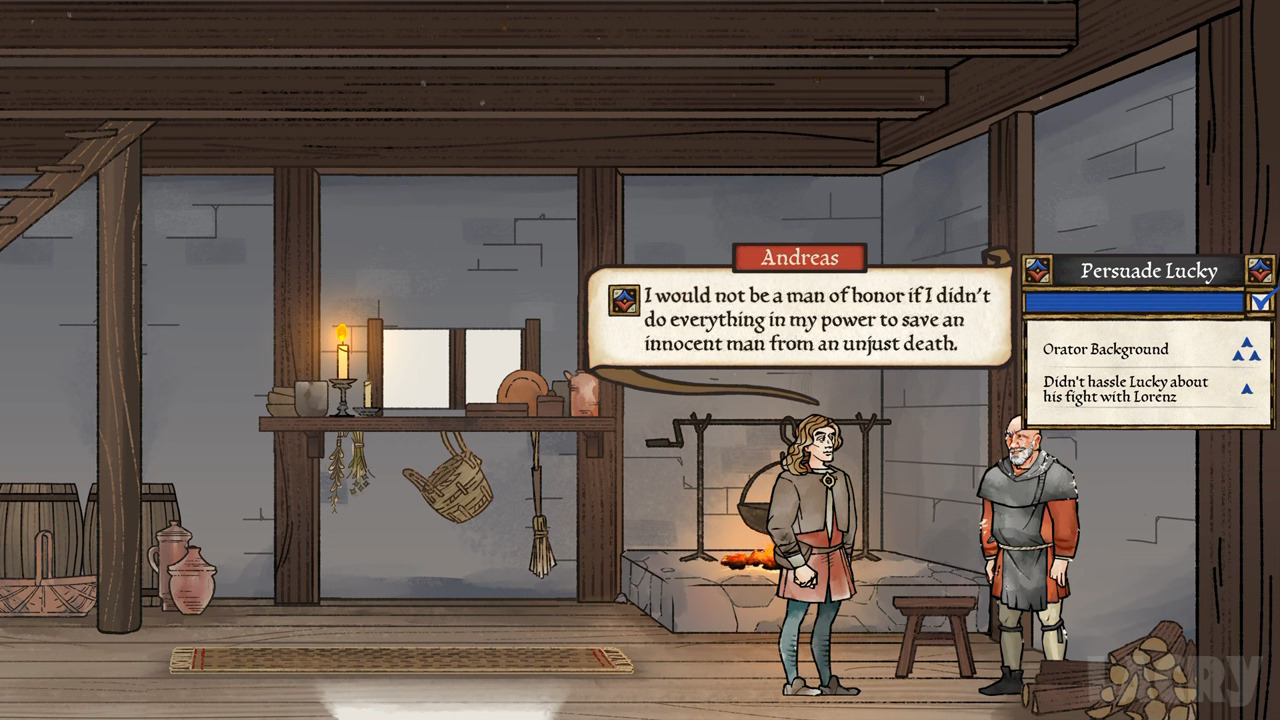Personal Picks
In addition to our main Game of the Year Awards 2022 (opens in new tab), each member of the PC Gamer team is shining a spotlight on a game they loved this year. We’ll post new personal picks, alongside our main awards, throughout the rest of the month.
When I selected Pentiment (opens in new tab) as my personal GOTY pick, I knew exactly what I was going to say: Here’s a game that gets the class struggle, man. Obsidian’s historical materialist storytelling was born in the Mojave (opens in new tab) and developed in the Deadfire (opens in new tab), but it unfurls to its full potential in Pentiment’s setting of Tassing, Bavaria. After all, this is a game in which actual lords, serfs, guild-masters and journeymen sizzle with resentment and vie for power, reactionaries conspire to keep the old world propped up even while its foundation disintegrates, and Rome’s corpse continues to stink and rot and infect society a thousand years after its death. This is dialectics: the game!
But having returned to Pentiment since then, I’ve decided I’m not going to write about any of that. I’m going to write about failure.

Pentiment is a game about living in failure. Tassing abounds with it. The entire town is an anachronism that’s only survived because it’s insignificant enough for history to overlook, at least for a time. In Tassing, tribes fell to Romans, Romans fell to Goths, Goths fell to the Catholic Church, and in 1518, when Pentiment’s first act takes place, the Catholic Church has just received a very long and irate letter from one Martin Luther, which surely won’t amount to much.
That’s not some devastating own on Tassing, the town where everyone sucks, it’s just a reflection of the basic historical fact that pretty much everything is always in a process of failing. Not disappearing, just failing, becoming ruins and giving way to something new that still carries the spectre of the old thing inside it. Pentiment is about how on Earth you deal with that.
That applies on a personal level, too. Andreas, the game’s protagonist, contends with failure everyday. He’s a university drop-out, a dithering late-bloomer who only discovered his passion because his family had the means to support his aimlessness. In gameplay, his (my) failures play out as botched persuasion rolls and missed conversations, which foreshorten his ability to progress down particular paths in the game’s murder investigation and box him into others.

I am not good with this. I’m basically the exact kind of person Pentiment cautions you against becoming: A perfectionist and a completionist who fixates on old mistakes. I’ve been known to sacrifice hours of progress in the name of reloading a save, just to modify a choice that ended up going foul.
I almost did it in Pentiment. Not the time I sent a very likely innocent man to the executioner’s block (I was certain, and remain certain, that none of the game’s possible suspects can be proven guilty beyond reasonable doubt), or even the many times I brought up my legal knowledge and convinced everyone I was a smug, know-it-all jackass (probably a fair assessment). It was a persuasion check against a nine year-old girl.
When time passed and I found her as an adult, she was… fine. A dutiful Christian homemaker. Husband, kids, and not a spark left in her.
At some point while playing I ended up chatting to a child with an interest in history. She wanted to learn more about Tassing’s pagan past but wasn’t sure she was allowed. Naturally, I tried to encourage her, and when the persuasion check popped up—my previous chats with her arrayed in a list of blue bonuses and red maluses—naturally, I failed.
When time passed and I found her as an adult, she was… fine. A dutiful Christian homemaker. Husband, kids, and not a spark left in her.
I felt awful. I’d accidentally done the early modern equivalent of telling the schoolkids at career day that their dreams are garbage and they should all get cushy accountancy gigs. I went to reload an old save—I’m not even sure I really had one, but that was my instinct—before realising it was doomed. I couldn’t just go back and put more points into speech, I’d have to change those red maluses into blue bonuses, which meant redoing nearly all my interactions with her over the entire course of the game. I hadn’t made one big mistake, but many little ones that built up.

So unless I was willing to start a completely new game, I’d have to take the failure forward with me. The deed was done, and all I could do now was hope to ameliorate the situation in the present or alter its future. Obsessing over it wouldn’t do anything but root me in place.
If, as the old quote goes, history is one single, unbroken catastrophe that keeps piling wreckage upon wreckage, then Pentiment says we shouldn’t be transfixed by it. The future can be improved, but the past can’t be repaired or escaped, and trying will just drive you mad as you stagnate. You have to take it with you as you go.
www.pcgamer.com







